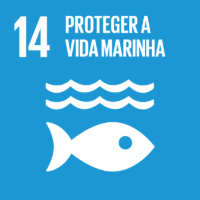Ciência_Iscte
Publicações
Descrição Detalhada da Publicação
To Manage Fisheries with Complexity and Chaos Theories
Título Revista
EasyChair Preprint Nº 10689
Língua
Inglês
País
Reino Unido
Mais Informação
Web of Science®
Esta publicação não está indexada na Web of Science®
Scopus
Esta publicação não está indexada na Scopus
Google Scholar
Esta publicação não está indexada no Overton
Abstract/Resumo
Chaos theory - and models related to non-linear dynamic systems - has increased its importance last decades. In fact, chaos is one of the concepts that most rapidly have expanded in what research topics respects. Chaos is ordinarily disorder or confusion; scientifically it represents a disarray connection, but basically it involves much more than that. Change and time are closely linked, and they are essential when considered together as chaos theory foundations are intended to be understood. Given the large number of applications in several areas, the goal of this work is to present chaos theory - and dynamical systems such as the theories of complexity - in terms of the interpretation of ecological phenomena. The theory of chaos applied in the context of ecological systems, especially in the context of fisheries, has allowed the recognition of the relevance of this kind of theories to explain fishing events. It raised new advances in the study of marine systems, contributing to the preservation of fish stocks.
Agradecimentos/Acknowledgements
--
Palavras-chave
chaos theory,complex adaptive systems,dynamical systems,fisheries
Classificação Fields of Science and Technology
- Matemáticas - Ciências Naturais
- Agricultura, Silvicultura e Pescas - Ciências Agrárias
- Economia e Gestão - Ciências Sociais
Contribuições para os Objetivos do Desenvolvimento Sustentável das Nações Unidas
Com o objetivo de aumentar a investigação direcionada para o cumprimento dos Objetivos do Desenvolvimento Sustentável para 2030 das Nações Unidas, é disponibilizada no Ciência_Iscte a possibilidade de associação, quando aplicável, dos artigos científicos aos Objetivos do Desenvolvimento Sustentável. Estes são os Objetivos do Desenvolvimento Sustentável identificados pelo(s) autor(es) para esta publicação. Para uma informação detalhada dos Objetivos do Desenvolvimento Sustentável, clique aqui.

 English
English



